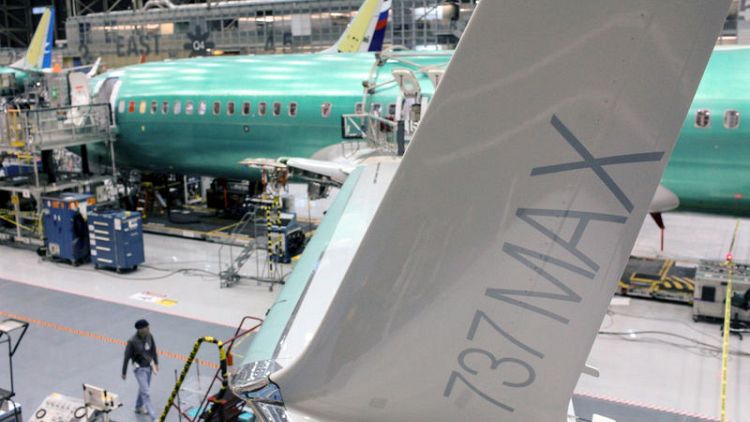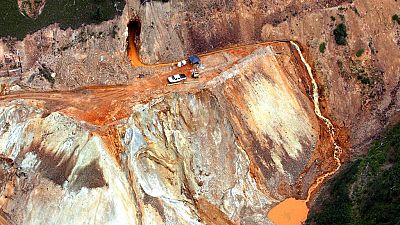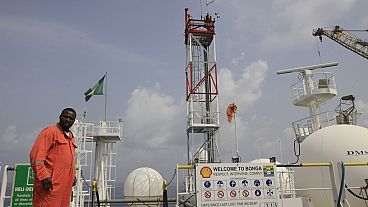By Eric M. Johnson, David Shepardson and Allison Lampert
SEATTLE/WASHINGTON/MONTREAL (Reuters) - Boeing engineers armed with laptops and thumb drives will be able to upload a crucial software fix for the 737 MAX anti-stall system in about an hour. That's the easy part.
Before Boeing's workhorse of the future can resume flying, the upgrade must first be approved by the U.S. Federal Aviation Administration (FAA) and then by wary regulators around the globe who have grounded it in the wake of two deadly crashes.
Regulators in China, Europe and Canada have signalled they will not rubber stamp an FAA decision to allow the planes back into the air but conduct their own reviews.
With the FAA under pressure for its role in certifying the newest 737, and other regulators challenging its leadership of the airline safety system, Boeing's money-spinning jet could remain parked for months.
"We are guessing this thing's not going to be put to bed until the July or August time frame," said Charlie Smith, chief investment officer at Fort Smith Capital Group, which holds shares in Boeing.
The world's largest planemaker has been working on the upgrade for its MCAS stall-prevention system since October's Lion Air crash, when pilots are believed to have lost a tug of war with software that repeatedly pushed the nose down.
Acting FAA Administrator Dan Elwell told the U.S. Senate Tuesday in written testimony that the agency will agree to allow the 737 MAX to return to service "only when the FAA’s analysis of the facts and technical data indicate that it is appropriate."
Boeing formally submitted a proposed MCAS software enhancement to the FAA for certification on Jan. 21, Elwell's testimony said.
Prior to certification, the FAA was "directly involved" in the review of the MCAS system but "time yields more data to be applied for continued analysis and improvement."
Boeing's flagship new single-aisle jet was grounded globally after a second crash in Ethiopia this month prompted concerns over possible similarities.
As a first step towards resuming flights and unfreezing deliveries, Boeing plans to provide more than 200 airlines and regulators with details on software and training on Wednesday.
Once the new software is approved, adding it will only take an hour per plane, according to an FAA official. But the overall task could stretch on far longer.
The FAA and Boeing will have to redo some analyses - including a formal functional hazard assessment - because they are making changes to a system that was already certified.
After the installation, there will be ground testing and flight tests, though how long these take could vary widely.
"Clearly there is pressure to get the airplanes ungrounded but there is tremendous pressure to make sure it was done right," the FAA official said.
"The last thing in the world you want is to have the thing hurried and then find problems with it."
Boeing and the FAA declined to comment.
FAA CHALLENGED
For decades, nations large and small followed the FAA's lead, but this month many ignored its initial declaration after the second crash that there was “no basis to order grounding the aircraft.”
The agency stood alone among top regulators. First China, then Singapore, Britain and Canada banned flights, before U.S. President Donald Trump announced the MAX would be grounded.
Now, the FAA and Boeing must run the gauntlet of increased overseas scrutiny as they try to unground the jet - with China once again in a position to undo the regulatory pecking order.
Toughening its public stance, China said on Tuesday it had stopped accepting applications to certify individual MAX jets.
Canada, Europe and Turkey have all suggested they will take whatever time is needed to check the software even after the FAA approves it - a move that would normally set a global lead.
The shift in regulatory power poses a challenge to Boeing’s efforts to quickly resolve the crisis, experts said.
Increased precautions by global regulators could also have a broad impact on an aviation system that relies on "reciprocity" between the United States, Canada and Europe in recognising each other's expertise in certifying a plane.
Having a regulator such as the FAA do the heavy lifting to certify a plane reduces costs and time, since agencies abroad can validate the results and not have to duplicate them.
That global system of trust, which helps limit costs and keep flying safe, could be at risk from any perception that the United States failed to act, said Teal Group analyst Richard Aboulafia.
"It just makes the system, innovation and the development of new products all the more expensive."
Mike Daniel, a former FAA accident investigator, said the crash revealed weaknesses in Boeing's relations with regulators and airlines abroad.
777X CERTIFICATION CONCERN
The FAA's acting head will tell a Senate panel on Wednesday the agency’s oversight approach must "evolve" too.
But in Canada, Transport Minister Marc Garneau told Reuters Ottawa had already gone further than the FAA following the first crash in October and was ready to move the bar higher again.
"So we don’t always do things exactly the same. It has to pass the sort of safety threshold from our point of view. And there’s nothing wrong with that," he said.
Meanwhile, the fallout may spread beyond the 737 family.
Certification could be delayed for the larger Boeing 777X, for which Lufthansa is a launch customer, as European regulators give it more a stringent review, the German airline's CEO said.
"Overall, foreign authorities will be more thorough in accepting American certifications. I think that for me is one of the outputs of these terrible events in Indonesia and Ethiopia already," Chief Executive Carsten Spohr told reporters.
(Reporting by Eric M. Johnson in SEATTLE, David Shepardson and Jeff Mason in Washington, Allison Lampert in MONTREAL, Tuvan Gumrukcu in ANKARA, Stella Qiu in BEIJING, Brenda Goh in SHANGHAI, Jamie Freed in SINGAPORE, Tracy Rucinski in CHICAGO, Alwyn Scott in NEW YORK and Tim Hepher in PARIS; Writing by Eric M. Johnson, Tim Hepher; Editing by)



